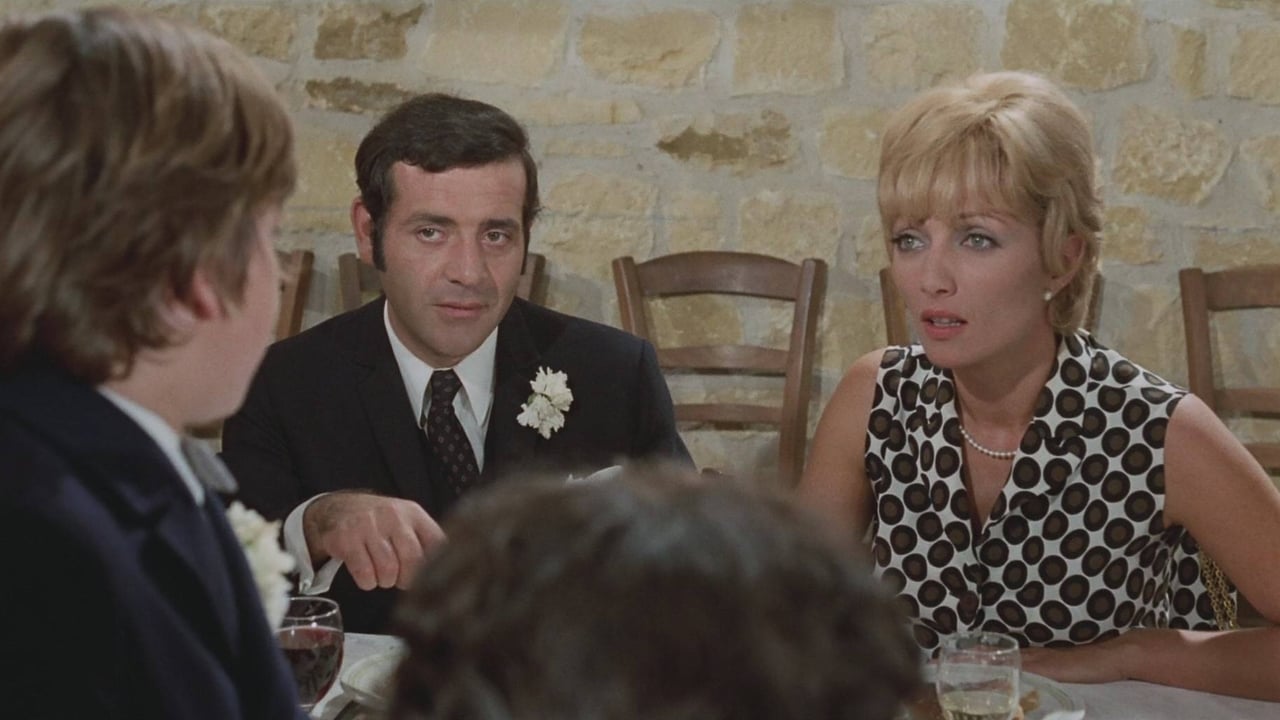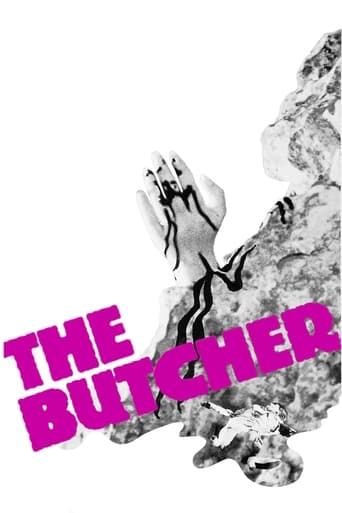

Very very predictable, including the post credit scene !!!
... View MoreAmateur movie with Big budget
... View MoreClose shines in drama with strong language, adult themes.
... View MoreExcellent characters with emotional depth. My wife, daughter and granddaughter all enjoyed it...and me, too! Very good movie! You won't be disappointed.
... View MoreThis film is a work of such blatant charlatanry that it calls into question the meaning of the word 'auteur' as it is applied to the French new wave directors. Such is the awe with which Chabrol was and continues to be regarded (including by Roger Ebert and Vincent Canby) that he apparently felt he could get away with anything. Le Boucher is a film so utterly devoid of dramatic interest that it would be charitable to regard it as a failed experiment that attempted to push the limits of cinematic exposition to an extremity of emptiness. I might forgive Chabrol for writing and producing it if his intention was to demonstrate the boring predictability of bourgeois culture in a place like Perigord, but I'd prefer to spend an hour and a half doing my laundry.
... View MoreClaude Chabrol's "Le Boucher" is a quiet, subtle and utterly absorbing psychological thriller about a couple who, at first glance, seem to be conventional, respectable and very well adjusted. It gradually becomes clear, however, that they're both emotionally and psychologically damaged in different ways and their friendship triggers unexpected impulses that eventually bring both trauma and tragedy to their peaceful village. The village is called Tremolat and is situated in the Pericord region of France.Helene (Stephane Audran), the headmistress of the village school and Popaul (Jean Yanne) the local butcher, meet at a wedding party and enjoy each other's company. As their friendship develops it emerges that Helene is dedicated to her work, well-liked by her pupils and highly respected by the people of Tremolat. Popaul has recently returned to the village after spending 15 years in the Army and has inherited the butcher shop following his father's death.Popaul seems gentle and friendly and gives Helene specially selected joints of lamb from his shop and is pleased to help with any work that needs doing in the school building. As a child he'd been abused by his father and during his Army career had seen countless horrific incidents. He tells Helene that he saw many terrible things that are too awful to describe and it's obvious just how profoundly his experiences have affected him.Popaul is desperate for his friendship with Helene to develop into a romance but when he discusses this with her, she tells him that following a relationship that she had 10 years before, she was left so hurt that she couldn't ever consider getting involved with anyone else in that way again. Popaul accepts the situation and they continue their friendship which remains purely platonic.During this period, the normal tranquillity of Tremolat is shattered when a young woman is murdered and her body is found at a location close to the village. Helene has the misfortune to discover a second body during a school trip with her pupils and is shocked to discover a cigarette lighter close by which is identical to one that she'd given to Popaul as a present. She, without hesitation, keeps the lighter and later goes through periods during which other developments lead her to believe initially in his guilt, then later in his innocence and finally in his guilt again before their story reaches its tragic denouement.The traumatic things that happened to Helene and Popaul in their pasts and the ways in which they responded to them were clearly beyond their control. Similarly, at the outset, it would have been impossible for either of them to predict how their relationship might ultimately become responsible for inflaming certain impulses that led to a series of violent deaths in their community. They are unquestionably victims whose actions led to dreadful results and caused them tremendous despair.Stephane Audran is wonderfully enigmatic as the beautiful, cool and seemingly very composed teacher who always appears to be the stronger partner in the relationship and Jean Yanne is also excellent as her very devoted but troubled friend."Le Boucher" is unsettling, thought provoking and rich in atmosphere but also unusual in the way that it combines, so effectively, a very simple plot with so much depth, poignancy and sensitivity This is a work of considerable substance that is totally captivating and a great credit to its writer and director, Claude Chabrol.
... View MoreGiven the overcooked nature of most modern thrillers, it's a pleasure to see what the late Claude Charbol could conjure out of a few simple elements. A sexy but abstemious young head teacher strikes up a friendship with a local butcher in a small French town; the first half of this movie is simply a character study, then someone dies and the story moves into darker territory, although steering clear of the mainstream ending. Although the soundtrack is dated, the way Charbol uses it is highly intelligent, subtly conveying a mood of menace; but ultimately this is a psychological study of a character less in control of her own life than she has liked to think. Perhaps the set-up is not completely convincing; but this is an intelligent movie, and one that rewards the viewer responding to it with an intelligence of their own.
... View MoreIt is common for the simple untrained mind to easily interpret the "murderer", or rather, the guilty one, as the protagonist actually committing the murder....But this is one brilliant piece of work by Chabrol, that actually plays with the thoughts and dogmas of the typical mindset, and constantly leaves us trying to grasp the most crucial aspect, namely: what are we failing to see? For starters, we have Popaul, a seemingly perfect sophisticated gentleman, falling for Helene. And Chabrol gives hints that perhaps he is the one behind the murders which suddenly start occurring shortly after he meets Helene. But we cannot be sure. All we are exposed to are hints. For the sharp eye, it is clear that deep inside, he is deprived. That is revealed when he meets Helene in the woods and directly asks her why she was still single. One of the crucial turning points was when Helene presented him with a lighter.It is then that the real theme, and motives of this flick begin to emerge and take shape in the eyes of the audience/ viewers. In my opinion, Popaul wanted helene to realise that he was the actual "human" butcher, when he "accidentally" left behind his lighter at the scene. Possibly a deliberate attempt by popaul to make Helene understand that his lack of her, or her resentment, was what was behind his acts.Immediately the plot gets enshrouded in an air of shock, confusion, mystery, which drags our minds towards the "Popaul - killer", "Helene - unfortunate bystander-cum-would-be-lover" idea. A close analysis later makes us really wonder whether Helene is as innocent as she believes herself to be. After all, Popaul represents some of our most innate desires - the desire to be recognised, and loved.On a more interesting note, his opportunity to kill Helene, in the last few minutes of the film, and his attempted suicide instead - show clearly that he was driven to such heinous crimes not because of any passion towards murder, but rather helene's denying him the love he craved for.The intense shots of Helene's blond hair...............a clear glimpse into Helene's darker sinister side................Chabrol subtly hints to us that she is the "real" criminal, who brings out the monster in Popaul,.................in contrast to her opening image of being the kind caring school teacher, dedicated to the happiness of the younger generation.A film which truly plays with our minds, and in a way, drifts away from the common mainstream thought and idea of how a murderer, victim, etc should be portrayed, and playing further with the idea of innocence. A truly noteworthy attempt by Chabrol to place before us Helene, an "epitome of innocence", who later became the real culprit of all the murders. Chabrol has created a flick with a mesh of intrigue,contradiction,mystery, with an outer "typical" surface plot for the common mindset, with an inner subtle twist which surfaces later on.
... View More